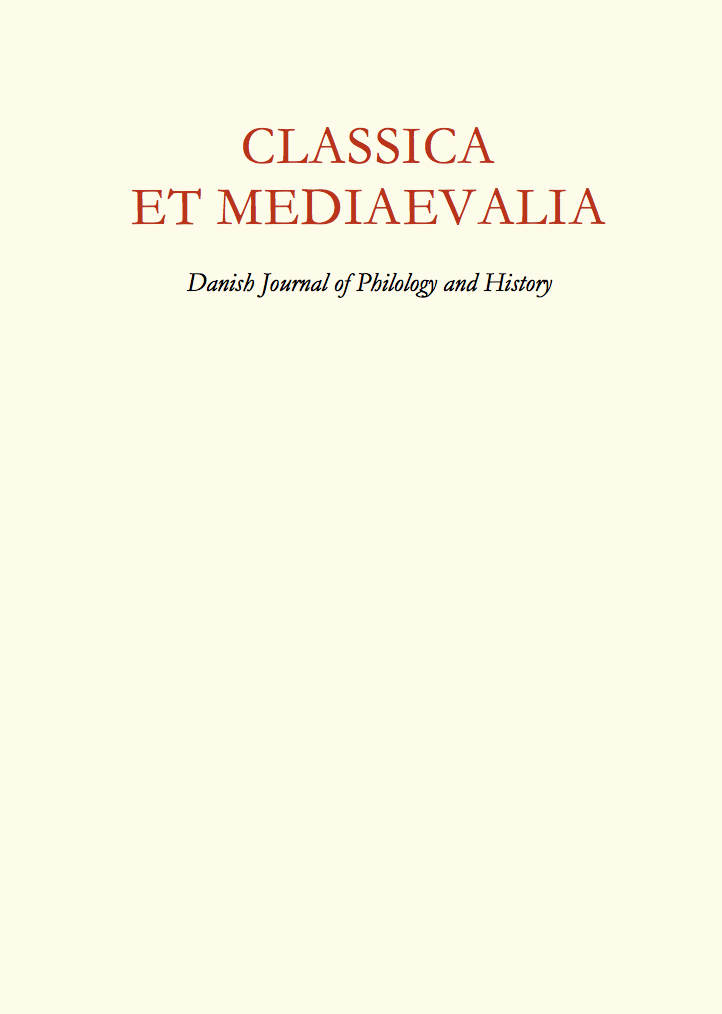L’énigme incarnée: Méliot de Logres dans le Haut Livre du Gral
DOI:
https://doi.org/10.7146/classicaetmediaevalia.v69i0.122174Abstract
The High Book of the Grail, also known as Perlesvaus, after its main character, an analogon of Perceval who evolves in a universe of blood and violence, is a French Arthurian prose romance of the 13th century. The principle of imperfection on which this romance is set encompasses its narrative composition, the consistency of its allegorical meaning, and the poetics of character. Meliot de Logres can be called an énigme incarnée, as its representation does not tend towards unity, but towards destruction. He is an enigma because of its numerous narrative functions (alter Christus, a man in distress, knight ...), and its symbolical power (he is ‘de Logres’, which suggests a moral signification, he embodies spiritual greatness that the romance does not develop). The semiological analysis of this secondary but important character is a way to understand the many problems aroused by the scripture of the High Book of the Grail. Meliot is not only a double: through him, we can see the complexity and intricacy of the romance as a whole.
Downloads
Published
How to Cite
Issue
Section
License
Authors who publish with this journal agree to the following terms:
- Authors retain copyright and grant the journal right of first publication with the work simultaneously licensed under a Creative Commons Attribution License that allows others to share the work with an acknowledgement of the work's authorship and initial publication in this journal.
- Authors are able to enter into separate, additional contractual arrangements for the non-exclusive distribution of the journal's published version of the work (e.g., post it to an institutional repository or publish it in a book), with an acknowledgement of its initial publication in this journal.
- Authors are permitted and encouraged to post their work online (e.g., in institutional repositories or on their website) prior to and during the submission process, as it can lead to productive exchanges, as well as earlier and greater citation of published work (see The Effect of Open Access).





